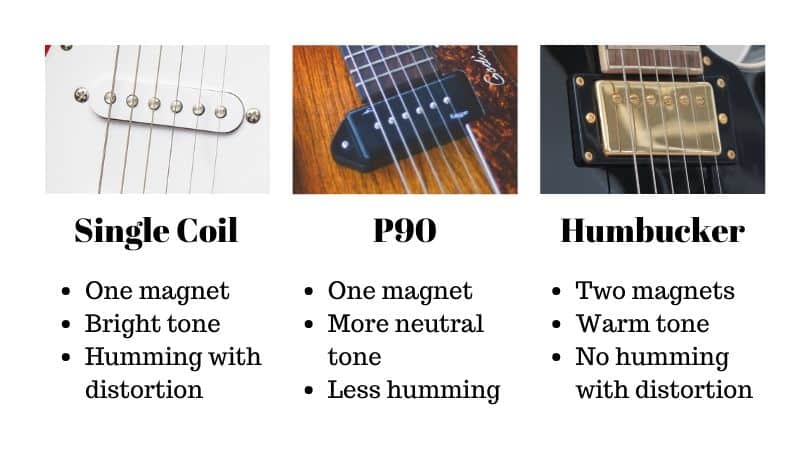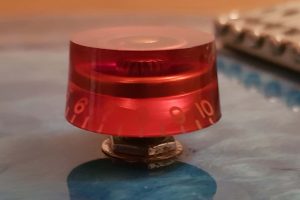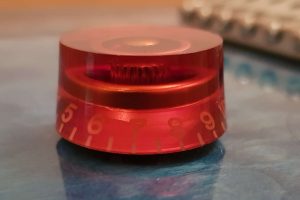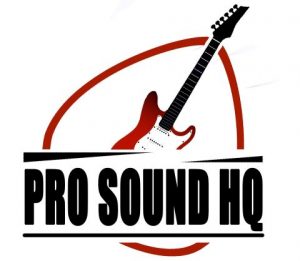Pickups are one of the most important aspects of your guitar, when it comes to determining how it sounds. There are loads of different types, makes and models, that it can be hard to decide what’s actually best for you.
One of the biggest questions that gets asked about pickups, is about the difference between coil split humbuckers and P90’s.
In this article, I’ll address how these types of pickups are different, how they sound and the pros and cons of each. So let’s get started!
The Quick Answer
Coil split humbuckers allow you to have the warm and full tone of a humbucker, and the bright tone of a single coil, within the same pickup, by simply lifting your tone control up, or pushing it down. P90 pickups sound like a cross between humbuckers and single coils, so have a more balanced tone.
| Coil Split Humbuckers | P90 Pickups |
| More versatile (two kinds of tones produced) | More balanced tone |
| Coil split tone sounds weak and thin | Only one type of sound is produced |
| Feedback issues in coil split position | More feedback than humbuckers, but less than in the coil split position |
Coil Split Humbuckers
Okay, so let’s start with coil split humbuckers. There are two things to address here. The term “coil split”, and the term “humbuckers”. Let’s start with humbuckers.
Pickups consist of magnets wrapped in coils of wire. This structure is mounted onto a bobbin, and then covered in metal or plastic.
There are three main pickup types: single coils, P90’s and humbuckers. Single coils sound bright and twangy, but also quite thin and have some feedback issues. They are named because they consist of just one set of coils.
Humbuckers on the other hand, sound darker, warmer and fuller, and have less feedback issues. This is because they have two sets of coils, running in opposite directions which cancels the feedback out.
P90 pickups consist of a single coil, however, they have a wider bobbin than standard single coil pickups. This causes them to sound like a cross between humbuckers and single coils. They have a balanced sound, and have more power than standard single coils, but you will still get some feedback issues.

Okay, so what is coil splitting then?
This is a feature that some humbucker pickups have, which allows them to sound like a single coil.
Coil splitting works by taking one of the humbuckers two coils, and shutting it off. It’s really easy to switch between the humbucker sound and coil split sound if your guitar has this feature.
You’ll simply need to pull the tone control up, and it’ll click into position. In this “up” position, the coils are split, and the tone will be brighter and thinner. In the”down” position, the humbucker acts as normal, and sounds warm and full.


What are P90 Pickups?
Okay, so we’ve already touched on this topic a bit, but let’s go through it in a bit more detail.
P90 pickups have a single coil structure, but they have a wider bobbin. This causes them to look wider than standard single coil pickups.
In terms of the tone, they are pretty balanced. They have a great treble response, meaning they sound bright and crisp, and have good note separation. But they also have a good mid-range response, meaning they sound quite full and thick, particularly compared to normal single coils.
They don’t sound as full and warm as humbuckers though. And you can still get some feedback issues with them, although not usually as much as you do with single coils.
They’re well suited to a range of different styles of music, so they’re pretty versatile. They are primarily used for blues, country and rock though. You won’t usually see them on guitars used for heavy metal though, as they don’t have a very strong bass response, and the feedback can become a problem with high distortion.
P90 pickups are popular with lead guitarists who want a brighter tone than humbuckers give them, but don’t want something quite as warm sounding. P90’s allow them to cut through the sound of the rest of the guitar.
If you’re interested in learning more about this topic, check out my in-depth guide to P90 pickups to answer all your questions.
Comparing the Two: Pros and Cons
So now you know a bit more about coil split humbuckers, and P90 pickups, you’re probably wondering which is the best option.
Here are some key points to consider:
- P90 pickups sound the most balanced.
- Coil split humbuckers will give you the versatility to produce warm and full humbucker tones, and bright and twangy single coil tones, all in the same pickup.
- Humbuckers in the coil split position, sound like single coils for the most part, but they do sound thinner and weaker, and also still suffer from feedback issues.
So if you’re struggling to decide between coil split humbuckers and P90’s, then you need to consider the following questions.
- Do you want to be able to produce very different tones from the same guitar? If so, choose the coil split humbuckers.
- Would you prefer a more balanced tone? If so, go for P90’s.
In my opinion, you should treat the coil splitting function as a bonus. The sound isn’t as good as it is with proper single coils, or P90’s in the coil split position. But it’s a great feature to have.
So unless you enjoy the tone of a traditional humbucker more than a P90, don’t just go for a coil split humbucker, as a compromise. You’ll probably be happier with a P90 tone instead.
| Coil Split Humbucker | |
| Advantages | Disadvantages |
| Versatility | In the coil split position, the tone is weak |
| Thick, low feedback tone | Feedback issues in the coil split position |
| P90 Pickups | |
| Advantages | Disadvantages |
| Balanced tone | Weak compared to humbuckers |
| Less feedback than single coils | Less suited to high distortion |
Check out my article comparing P90 and humbucker pickups to learn more.
So there you go! That’s the difference between coil split humbucker and P90 pickups! I hope you’ve found this article helpful, thanks for reading. Here are some other posts you might find useful:
